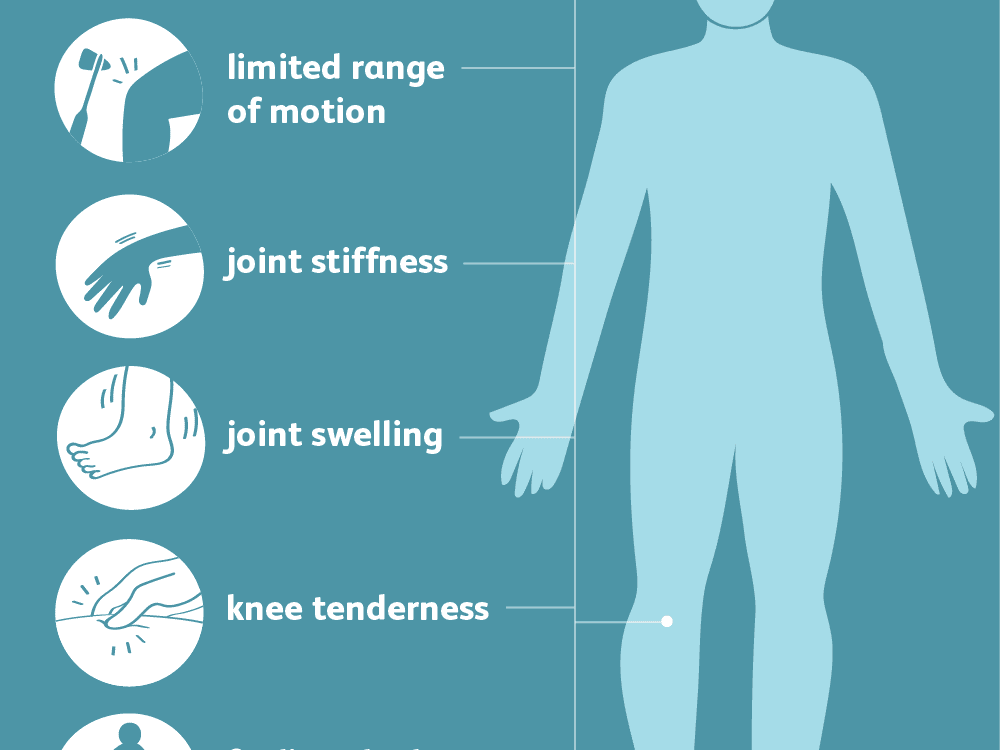
Arthritis is a disease that affects the joints, which are the areas where two bones come together. There are many different types of arthritis, and symptoms vary from one type to another. In this article, we will discuss some common symptoms as well as treatment options for each type of arthritis.
Type #1: Osteoarthritis
Description: the most common form of arthritis
Symptoms: pain in joints, loss of movement, stiffness and swelling
Treatment options: Non-steroidal anti-inflammatory drugs (NSAIDs) like ibuprofen or naproxen. If they are not effective then injections with corticosteroids can be considered. Also physical therapy is recommended to maintain flexibility and strength in muscles surrounding affected area. Surgery may also be an option for severe cases where there is joint destruction that cannot otherwise be managed conservatively.(This sentence rambles on too much.)
Type #2: Rheumatoid Arthritis
Description: a chronic autoimmune disorder caused by inflammation in the joints and surrounding tissues.
Symptoms: pain, stiffness and swelling of multiple joints (knees, wrists etc.) on both sides of body; fatigue; loss of appetite; weight loss due to low intake secondary to digestive problems such as indigestion or nausea
Treatment options: Anti-inflammatory medications like NSAIDs for short term relief from symptoms such as ibuprofen/naproxen. Surgery may also be an option if there is severe damage to bones and cartilage which cannot otherwise be managed conservatively. Physical therapy can help maintain flexibility and strength in muscles surrounding affected area.
Type #3: Psoriatic Arthritis
Description: arthritis associated with psoriasis.
Symptoms: pain, swelling and stiffness in multiple joints (knees/wrists), lower back or neck; skin rash which is often scaly and red patches covered by silvery scales on elbows, knees etc.
Treatment options: Anti-inflammatory medications like NSAIDs can reduce inflammation of affected area resulting from chronic illness such as ibuprofen/naproxen. Physical therapy exercises to maintain flexibility and strength in muscles surrounding affected area are also recommended treatments for this type of arthritis since it causes disability due to damage done over a period of time–similarly surgery may be an option if there is severe damage to bones and cartilage.
Type #4: Reactive Arthritis
Description: a form of arthritis which occurs in response to an infection.
Symptoms: pain, swelling and stiffness in multiple joints (knees/wrists), lower back or neck; skin rash consisting of red patches covered by silvery scales on elbows, knees etc.; diarrhea associated with inflammatory bowel disease such as ulcerative colitis or Crohn’s disease can also be present.
Treatment options: Treatment is similar to other types of rheumatoid arthritis-anti-inflammatory medications like NSAIDs for short term relief from symptoms such as ibuprofen/naproxen may reduce inflammation since it causes disability over time–similarly surgery may be an option if there is severe damage to bones and cartilage. Physical therapy exercises to maintain flexibility and strength in muscles surrounding affected area are recommended treatments for this type of arthritis since it causes disability due to long-term damage.


